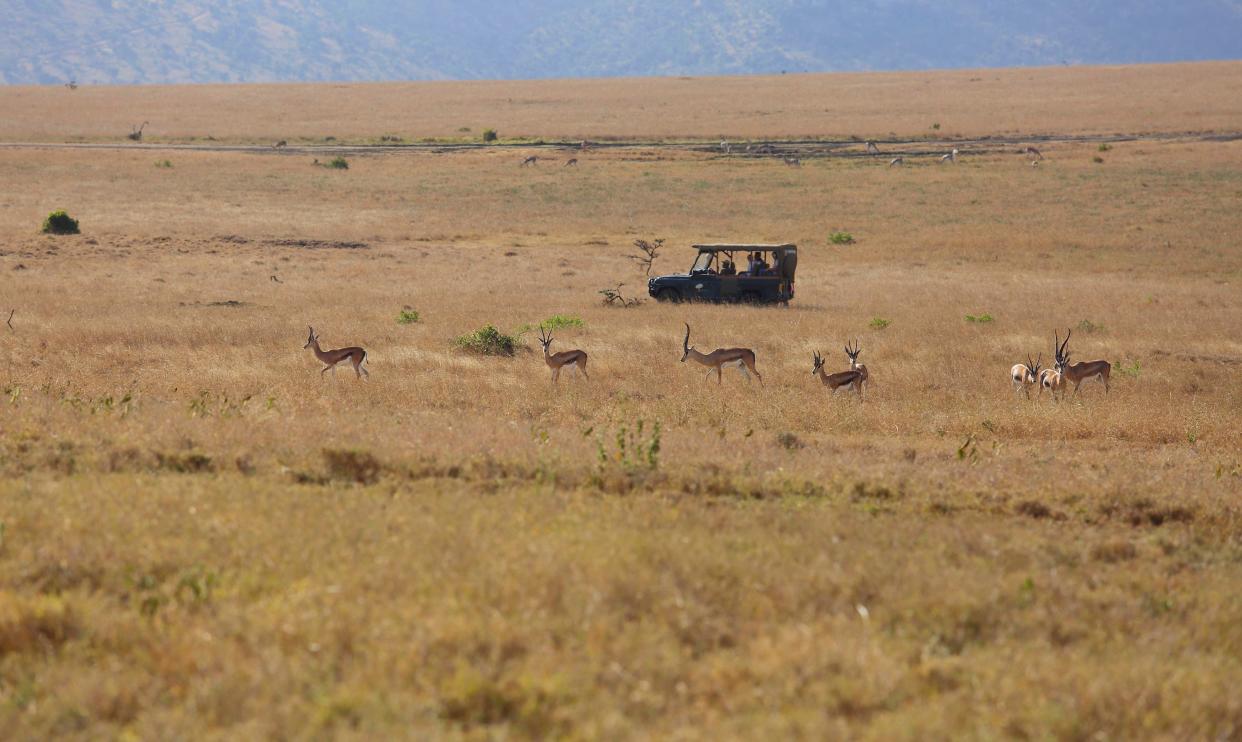How one family’s dream is helping to drive sustainability in Africa

It is becoming increasingly obvious that travel cannot continue in the same‘single use’ way so things have to change.
Travel has always been a huge passion of ours so we wanted to see what was possible and how we could potentially help with the longevity of an area close to our hearts: the Borana Conservancy in Kenya.
Minnie had lived and worked in Kenya many years ago and still had a great fondness for the country, its people and her friendships of many years. We had various ideas and it was obvious from the outset that we wanted to build something special. Our plans slowly came together and in 2015 we started to build our home in Kenya, which we later named Lengishu.
Lengishu finally opened in 2019 and is now an exclusive use safari home set high on a hill. From the outset, our vision was to create a home with sustainability as its prime focus. This guided every element of design, build and management. We were and remain passionate about preserving the balance of the existing Borana landscape.
Lengishu was built with locally sourced materials, expertly crafted by local artisans and from the day its doors first opened all the conservation fees paid by the guests have been invested into the conservation of land and wildlife, most notably the endangered black rhino and its habitat. The rest of the ‘Big Five’ can also be seen at Borana and are protected.
Discretely nestled into both sides of a ridge, Lengishu was designed to blend quietly into its natural surroundings, taking care not to break the silhouette of this ridge. My wife, Minnie, who had a background in interior design, worked with a local designer and his team of local builders.
The house is built entirely of sustainable materials. The wooden beams and panels are made of Kenyan timber, stone for the floors and design features were excavated from the site, and earth from the site clads the walls.
Minnie worked with Ruth Horsey, a local garden designer, who planted an array of indigenous plants and shrubs which blend subtly with those of the surrounding bush.
We were very keen to make sure that Lengishu contributed to the core conservation costs of Borana. Collectively, Borana supports numerous health, education and microenterprise programmes outside the conservancy.
Minnie and I are inspired by the “4C’s” - guiding principles which drive everything we do. The first of these is ‘community’. We try to establish relationships that develop recognition of the advantages of preserving wildlife through employment and the opportunities to use the land for enterprise, development and commerce. Borana Conservancy operates a mobile health clinic and supports a substantial number of nearby schools.
The second is ‘culture’. Our intention is to support local people and their traditions. Ensuring that local employment and successful commerce continue to thrive, together with good healthcare and education, is vital for preserving local culture and removing the need to seek employment further afield.
Then there is ‘conservation’. Our aim is to ensure that the wildlife has a safe habitat within which to breed and thrive. Securing and expanding this ecosystem and managing the interaction between humans and wildlife is the underlying mission of the Conservancy. And then, last but certainly not least, is ‘commerce’.
Leveraging the power of sustainable tourism on Borana Conservancy aims to maximise employment, taxable revenues, agriculture and productive land use. At Lengishu, the water is sourced from two solar-powered bore holes, its purity enabling filtering, bottling and carbonating on- site, reducing the necessity of importing plastic bottles. Rainwater is collected for irrigation and is stored in a 300,000-litre tank.
All of the grey water is recycled for garden use. Electricity is generated by a substantial solar farm and firewood is collected from sustainable wood-lots on Borana Conservancy.
Fresh food, prepared by our experienced chef, Sam, is created from organic produce predominantly grown at the nearby Waitabit Farm, which is within Borana Conservancy. Lengishu also grows salads and herbs in its own kitchen garden.
In November 2020 Lengishu’s application for membership of The Long Run was approved. The Long Run is a membership organization of nature-based tourism businesses committed to driving sustainability.
The community is global in scope and growing. The aim is to maintain a healthy and productiveplanet for posterity. Collectively, members of The Long Run conserve over 21-million acres of biodiversity and improve the lives of 750,000 people.
Having been selected to The Long Run’s membership, Lengishu is now committed to becoming a Global Ecosphere Retreat location within 5 years. This is the most rigorous sustainability audit that can be achieved in hospitality today. We are hoping that all properties on Borana Conservancy, including ours, will follow suit.
Borana Conservancy is playing a hugely important role in the long-term sustainability of this unique part of Kenya. Our house is designed to further the success of Borana and help to make a difference for future generations.
Joe and Minnie MacHale are the owners of Lengishu. More information can be found here

